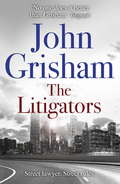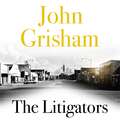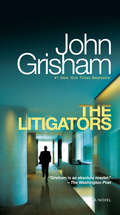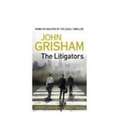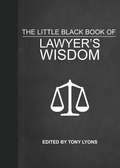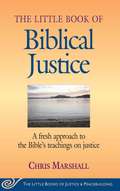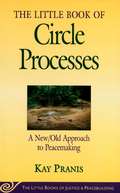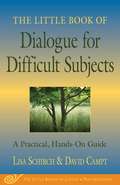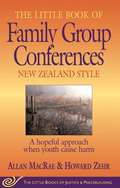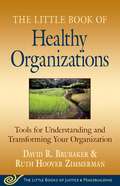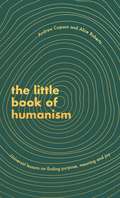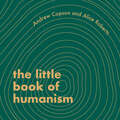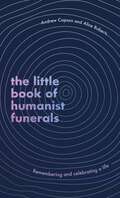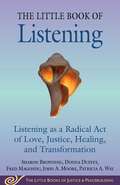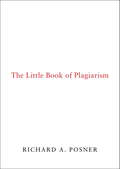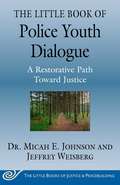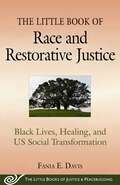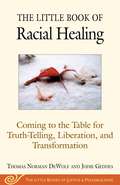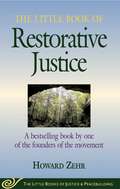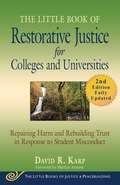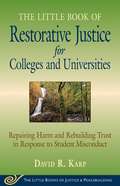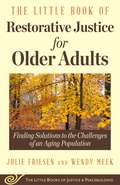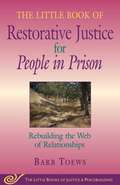- Table View
- List View
The Litigators: The blockbuster bestselling legal thriller from John Grisham
by John Grisham'No one does it better than Grisham' TelegraphStreet lawyer. Street rules.David Zinc has it all: Big firm, big salary, life in the lawyer's fast lane.Until the day he snaps and throws it all away.Leaving the world of corporate law far behind, he talks himself into a new job with Finley & Figg. A self-styled 'boutique' firm with only two partners, Oscar Finley and Wally Figg are ambulance-chasing street lawyers who hustle nickel-and-dime cases, dreaming of landing the big win.For all his Harvard Law Degree and five years with Chicago's top firm, Zinc has never entered a courtroom, never helped a client who really needed a lawyer, never handled a gun.All that is about to change.What readers are saying about THE LITIGATORS'Unputdownable!' - 5 STARS'Vintage Grisham' - 5 STARS'Grisham at his best' - 5 STARS 350+ million copies, 45 languages, 9 blockbuster films:NO ONE WRITES DRAMA LIKE JOHN GRISHAM
The Litigators: The blockbuster bestselling legal thriller from John Grisham
by John GrishamThe classic legal thriller and huge bestseller from master of the genre John Grisham.David Zinc has it all: Big firm, big salary, life in the lawyer's fast lane.Until the day he snaps and throws it all away.Leaving the world of corporate law far behind, he talks himself into a new job with Finley & Figg. A self-styled 'boutique' firm with only two partners, Oscar Finley and Wally Figg are ambulance-chasing street lawyers who hustle nickel-and-dime cases, dreaming of landing the big win.For all his Harvard Law Degree and five years with Chicago's top firm, Zinc has never entered a courtroom, never helped a client who really needed a lawyer, never handled a gun.All that is about to change.(P)2011 Random House Audio
The Litigators: A Novel
by John Grisham#1 NEW YORK TIMES BESTSELLER • After leaving a fast-track legal career and going on a serious bender, David Zinc is sober, unemployed, and desperate enough to take a job at Finley & Figg, a self-described &“boutique law firm&” that is anything but. Oscar Finley and Wally Figg are in fact just two ambulance chasers who bicker like an old married couple. But now the firm is ready to tackle a case that could make the partners rich—without requiring them to actually practice much law. A class action suit has been brought against Varrick Labs, a pharmaceutical giant with annual sales of $25 billion, alleging that Krayoxx, its most popular drug, causes heart attacks. Wally smells money. All Finley & Figg has to do is find a handful of Krayoxx users to join the suit. It almost seems too good to be true ... and it is.Don&’t miss John Grisham&’s new book, THE EXCHANGE: AFTER THE FIRM!
The Litigators (india Only Local Print)
by John GrishamAfter leaving a fast-track legal career and going on a serious bender, David Zinc is sober, unemployed, and desperate enough to take a job at Finley & Figg, a self-described “boutique law firm” that is anything but. <P><P>Oscar Finley and Wally Figg are in fact just two ambulance chasers who bicker like an old married couple. But now the firm is ready to tackle a case that could make the partners rich—without requiring them to actually practice much law. A class action suit has been brought against Varrick Labs, a pharmaceutical giant with annual sales of $25 billion, alleging that Krayoxx, its most popular drug, causes heart attacks. Wally smells money. All Finley & Figg has to do is find a handful of Krayoxx users to join the suit. It almost seems too good to be true . . . and it is.
The Little Black Book of Lawyer's Wisdom
by Tony LyonsA handy guide to legal wisdom past and present.To be a lawyer or a politician or a judge, one must dedicate their lives to serving the public good. For anyone considering a career in law or anyone interested in philosophy, politics, and/or government, herein you will find an entertaining and educational collection of legal wisdom from some of history’s greatest thinkers. The road to justice is not always easy. It is fraught with conflict, scandal, adversity, and sleepless nights. It is a noble and necessary pursuit as society continues to progress and seek equality for all. Words from renowned lawyers, judges, authors, politicians, philosophers, and preachers make up this diverse assortment of over two hundred memorable, bite-sized quotations about justice, philosophy, crime, the life of a lawyer, landmark cases, and more!Included are such quotations as:"Let all laws by clear, uniform, and precise; to interpret laws is almost always to corrupt them.” -Voltaire"If in your own judgment you cannot be an honest lawyer, resolve to be honest without being a lawyer.” -President Abraham Lincoln"The first duty of society is justice.” -Alexander Hamilton"A system of justice is the richer for diversity of background and experience.” -U.S. Supreme Court Justice Ruth Bader Ginsburg
Little Book of Biblical Justice: A Fresh Approach To The Bible's Teachings On Justice
by Chris Marshall"The purpose of this Little Book is to identify some characteristic features of the Bible's teaching on justice. "The Bible has had a profound impact on the development of Western culture. So exploring biblical perspectives on justice can help us appreciate some of the convictions and values that have helped shape Western political and judicial thought. "Christians also regard the Bible as a uniquely important source of guidance on matters of belief and practice. What the Bible has to say about justice, therefore -- both social justice and criminal justice -- ought to be of great significance for Christian thought and action today. "Yet coming to grips with biblical teaching on justice is by no means easy." Upfront, Marshall addresses the many complexities that surround "justice" in the Bible: the Bible seems to hold conflicting points of view; there is a huge amount of data to deal with; the world of the Bible and our present world are vastly different. Marshall's honest treatment of this subject is direct, yet almost lyrical in tone. He manages a thorny, multi-faceted subject clearly and ultimately singles out the broad areas of theological agreement among the Bible's writers. Highly stimulating. Highly inspirational.
Little Book of Circle Processes: A New/Old Approach To Peacemaking
by Kay PranisOur ancestors gathered around a fire in a circle, families gather around their kitchen tables in circles, and now we are gathering in circles as communities to solve problems. The practice draws on the ancient Native American tradition of a talking piece. Peacemaking Circles are used in neighborhoods to provide support for those harmed by crime and to decide sentences for those who commit crime, in schools to create positive classroom climates and resolve behavior problems, in the workplace to deal with conflict, and in social services to develop more organic support systems for people struggling to get their lives together. A title in The Little Books of Justice and Peacebuilding Series.
Little Book of Dialogue for Difficult Subjects: A Practical, Hands-On Guide
by Lisa SchirchThe word "dialogue" suffers from over-use, yet its practice is as transforming and as freshly hopeful as ever. Authors Schirch and Campt demonstrate dialogue's life and possibilities in this clear and absorbing manual: "Dialogue allows people in conflict to listen to each other, affirm their common ground, and explore their differences in a safe environment." Schirch has worked throughout the Southern hemisphere in peacebuilding projects. Campt has focused on racial and class reconciliation in American cities.
Little Book of Family Group Conferences New Zealand Style: A Hopeful Approach When Youth Cause Harm
by Allan MacRaeFamily Group Conferences (FGCs) are the primary forum in New Zealand for dealing with juvenile crime as well as child welfare issues. This third volume in The Little Books of Justice and Peacebuilding Series is about the juvenile justice system that is built around these conferences. Since their introduction in New Zealand, Family Group Conferences have been adopted and adapted in many places throughout the world. They have been applied in many arenas including child welfare, school discipline, and criminal justice, both juvenile and adult. In fact, FGCs have emerged as one of the most promising models of restorative justice. This Little Book describes the basics and rationale for this approach to juvenile justice, as well as how an FGC is conducted. A title in The Little Books of Justice and Peacebuilding Series.
Little Book of Healthy Organizations: Tools For Understanding And Transforming Your Organization (Little Books Of Justice And Peacebuilding Ser.)
by David BrubakerThe best way to change the world may be one organization at a time. With this ambitious claim, the authors of this highly readable primer provide insightful analysis for evaluating and improving the health of any organization. They advocate a "systems approach," which views organizations as living systems, interconnected in their various departments, and interfacing with their environments. Leaders of organizations from all sectors will find sound advice concerning the four major components of organizations -- their structure, leadership, culture, and environment. Find out: What the classic dispute over "who gets the corner office" is really about. The difference between a good leader and a great one. What new hires may know about an organization that longer-term employees don't. How organizational change and conflict are not only inevitable, but survivable. Each chapter contains examples from the authors' varied experiences with organizational change and conflict, written from a spirited, hopeful approach for creating a better world. A title in The Little Books of Justice and Peacebuilding Series.
The Little Book of Humanism: Universal lessons on finding purpose, meaning and joy
by Alice Roberts Andrew CopsonTHE SUNDAY TIMES BESTSELLERWe all want to lead a happy life. Traditionally, when in need of guidance, comfort or inspiration, many people turn to religion. But there has been another way to learn how to live well - the humanist way - and in today's more secular world, it is more relevant than ever.In THE LITTLE BOOK OF HUMANISM, Alice Roberts and Andrew Copson share over two thousand years of humanist wisdom through an uplifting collection of stories, quotes and meditations on how to live an ethical and fulfilling life, grounded in reason and humanity.With universal insights and beautiful original illustrations, THE LITTLE BOOK OF HUMANISM is a perfect introduction to and a timeless anthology of humanist thought from some of history and today's greatest thinkers.
The Little Book of Humanism: Universal lessons on finding purpose, meaning and joy
by Alice Roberts Andrew CopsonTHE SUNDAY TIMES BESTSELLERWe all want to lead a happy life. Traditionally, when in need of guidance, comfort or inspiration, many people turn to religion. But there has been another way to learn how to live well - the humanist way - and in today's more secular world, it is more relevant than ever.In THE LITTLE BOOK OF HUMANISM, Alice Roberts and Andrew Copson share over two thousand years of humanist wisdom through an uplifting collection of stories, quotes and meditations on how to live an ethical and fulfilling life, grounded in reason and humanity.With universal insights and beautiful original illustrations, THE LITTLE BOOK OF HUMANISM is a perfect introduction to and a timeless anthology of humanist thought from some of history and today's greatest thinkers.
The Little Book of Humanism: Universal lessons on finding purpose, meaning and joy
by Alice Roberts Andrew CopsonTHE SUNDAY TIMES BESTSELLERWe all want to lead a happy life. Traditionally, when in need of guidance, comfort or inspiration, many people turn to religion. But there has been another way to learn how to live well - the humanist way - and in today's more secular world, it is more relevant than ever.In THE LITTLE BOOK OF HUMANISM, Alice Roberts and Andrew Copson share over two thousand years of humanist wisdom through an uplifting collection of stories, quotes and meditations on how to live an ethical and fulfilling life, grounded in reason and humanity.With universal insights and beautiful original illustrations, THE LITTLE BOOK OF HUMANISM is a perfect introduction to and a timeless anthology of humanist thought from some of history and today's greatest thinkers.
The Little Book of Humanist Funerals: Remembering and celebrating a life
by Andrew Copson Alice RobertsFrom the Sunday Times bestselling authors of THE LITTLE BOOK OF HUMANISMA humanist funeral allows us the freedom to remember and celebrate the life of someone in exactly the way we want to and - as the most popular alternative to a religious ceremony - put us more closely in touch with the precious nature of life.In a beautiful collection of insights from humanist celebrants, as well as quotes, poems and meditations from humanist writers and thinkers throughout history, THE LITTLE BOOK OF HUMANIST FUNERALS is the perfect introduction to the humanist approach to life and death.
The Little Book of Humanist Funerals: Remembering and celebrating a life
by Andrew Copson Alice RobertsFrom the Sunday Times bestselling authors of THE LITTLE BOOK OF HUMANISMA humanist funeral allows us the freedom to remember and celebrate the life of someone in exactly the way we want to and - as the most popular alternative to a religious ceremony - put us more closely in touch with the precious nature of life.In a beautiful collection of insights from humanist celebrants, as well as quotes, poems and meditations from humanist writers and thinkers throughout history, THE LITTLE BOOK OF HUMANIST FUNERALS is the perfect introduction to the humanist approach to life and death.
Little Book of Listening: Listening as a Radical Act of Love, Justice, Healing, and Transformation (Justice and Peacebuilding)
by Sharon Browning Donna Duffey Fred Magondu John A. Moore Patricia A. WayA practical guide to listening well in restorative justice programs and any relationship.The Little Book of Listening is an introduction to and practical guide for listening as an emergent strategy for creating a transformed world. It presents radical listening as an essential macro-skill, one that is essential in forming &“right relationships&” with ourselves and others that are the necessary prerequisite to all lasting forms of social change. This is a collaborative book, constructed from the contributions of twenty-six listeners from a wide variety of backgrounds who have shared their strategies, experiences, inspiration, and hopes for a transformed world through listening justly and equitably. One of the primary goals of the book is to offer practical tools for readers to develop the skills to listen to themselves and others more effectively, drawing attention to the barriers and filters that so often distract us from listening. Another goal is to inspire readers through the personal stories of how just listening has impacted the authors and invite readers to adopt these approaches themselves. Finally, we aim for this text to be a resource for practitioners in the fields of justicebuilding and peacebuilding. Conversations are how humans explore new ideas and reach new understandings: paradigms shift and the world is changed by our communication with each other. Whatever processes are used, it is imperative that facilitators and participants listen deeply, humbly, and attentively, without ego or agenda, to themselves and to one another.
The Little Book of Plagiarism
by Richard A. PosnerA concise, lively, and bracing exploration of an issue bedeviling our cultural landscape–plagiarism in literature, academia, music, art, and film–by one of our most influential and controversial legal scholars. Best-selling novelists J. K. Rowling and Dan Brown, popular historians Doris Kearns Goodwin and Stephen Ambrose, Harvard law professor Charles Ogletree, first novelist Kaavya Viswanathan: all have rightly or wrongly been accused of plagiarism–theft of intellectual property–provoking widespread media punditry. But what exactly is plagiarism? How has the meaning of this notoriously ambiguous term changed over time as a consequence of historical and cultural transformations? Is the practice on the rise, or just more easily detectable by technological advances? How does the current market for expressive goods inform our own understanding of plagiarism? Is there really such a thing as “cryptomnesia,” the unconscious, unintentional appropriation of another’s work? What are the mysterious motives and curious excuses of plagiarists? What forms of punishment and absolution does this “sin” elicit? What is the good in certain types of plagiarism? Provocative, insightful, and extraordinary for its clarity and forthrightness,The Little Book of Plagiarismis an analytical tour de force in small, the work of “one of the top twenty legal thinkers in America” (Legal Affairs), a distinguished jurist renowned for his adventuresome intellect and daring iconoclasm.
The Little Book of Police Youth Dialogue: A Restorative Path Toward Justice (Justice and Peacebuilding)
by Dr. Micah E. Johnson Jeffrey WeisbergDiscover the police-youth dialogue (PYD) as a method to build trustworthiness, mend relationships, and heal historical harms between black youth and law enforcement. This timely book from the Justice and Peacebuilding series offers an explanation of the need for meaningful dialogue between law enforcement and black youth, a blueprint for implementing police-youth dialogues, best practices and examples, anecdotes and narratives from participants, different models and formats, potholes and limitations, and tangible tools and action steps for starting a police-youth dialogue program. Ultimately, the strategies and techniques used in effective police-youth dialogues can bring attention to issues of implicit bias and the impact of toxic stress on marginalized groups, ameliorate tensions between law enforcement officers and black youth, and build toward a model of community policing and restorative justice rather than punitive discipline and violence.The Little Book of Police-Youth Dialogue presents readers with relevant knowledge and research regarding trauma and race in the United States, strategies for creating a safe space of attentive listening and mediating genuine connections between police officers and black youth, and specific ways to take action in ameliorating police-youth tensions and promoting healing in their local communities.
The Little Book of Race and Restorative Justice: Black Lives, Healing, and US Social Transformation (The Little Books of Justice and Peacebui)
by Fania E. DavisRacial Justice and Restorative Justice Working Together to Transform the Black Experience in America This timely work will inform scholars and practitioners on the subjects of pervasive racial inequity and the healing offered by restorative justice practices. Addressing the intersectionality of race and the US criminal justice system, social activist Fania E. Davis explores how restorative justice has the capacity to disrupt patterns of mass incarceration through effective, equitable, and transformative approaches. Eager to break the still-pervasive, centuries-long cycles of racial prejudice and trauma in America, Davis unites the racial justice and restorative justice movements, aspiring to increase awareness of deep-seated problems as well as positive action toward change. In The Little Book of Race and Restorative Justice, Davis highlights real restorative justice initiatives that function from a racial justice perspective; these programs are utilized in schools, justice systems, and communities, intentionally seeking to ameliorate racial disparities and systemic inequities. Furthermore, she looks at initiatives that strive to address the historical harms against African Americans throughout the nation. This newest addition the Justice and Peacebuilding series is a much needed and long overdue examination of the issue of race in America as well as a beacon of hope as we learn to work together to repair damage, change perspectives, and strive to do better.
The Little Book of Racial Healing: Coming to the Table for Truth-Telling, Liberation, and Transformation (The Little Books of Justice and Peacebui #1)
by Thomas Norman Dewolfe Geddes JodiePeople of color, relative to white people, fall on the negative side of virtually all measurable social indicators. The “living wound” is seen in the significant disparities in average household wealth, unemployment and poverty rates, infant mortality rates, access to healthcare and life expectancy, education, housing, and treatment within, and by, the criminal justice system. Coming to the Table (CTTT) was born in 2006 when two dozen descendants from both sides of the system of enslavement gathered together at Eastern Mennonite University (EMU), in collaboration with the Center for Justice & Peacebuilding (CJP). Stories were shared and friendships began. The participants began to envision a more connected and truthful world that would address the unresolved and persistent effects of the historic institution of slavery. This Little Book shares Coming to the Table’s vision for the United States—a vision of a just and truthful society that acknowledges and seeks to heal from the racial wounds of the past. Readers will learn practical skills for better listening; discover tips for building authentic, accountable relationships; and will find specific and varied ideas for taking action.
The Little Book of Restorative Justice: Revised and Updated (Justice and Peacebuilding)
by Howard ZehrHoward Zehr is the father of Restorative Justice and is known worldwide for his pioneering work in transforming understandings of justice. Here he proposes workable principles and practices for making Restorative Justice possible in this revised and updated edition of his bestselling, seminal book on the movement. (The original edition has sold more than 110,000 copies.)Restorative Justice, with its emphasis on identifying the justice needs of everyone involved in a crime, is a worldwide movement of growing influence that is helping victims and communities heal, while holding criminals accountable for their actions.This is not soft-on-crime, feel-good philosophy, but rather a concrete effort to bring justice and healing to everyone involved in a crime. In The Little Book of Restorative Justice, Zehr first explores how restorative justice is different from criminal justice. Then, before letting those appealing observations drift out of reach into theoretical space, Zehr presents Restorative Justice practices. Zehr undertakes a massive and complex subject and puts it in graspable from, without reducing or trivializing it.This resource is also suitable for academic classes and workshops, for conferences and trainings, as well as for the layperson interested in understanding this innovative and influential movement.
The Little Book of Restorative Justice for Colleges and Universities, Second Edition: Repairing Harm and Rebuilding Trust in Response to Student Misconduct (Justice and Peacebuilding)
by David R. KarpA Practitioner's Reference and Guide to Implement Restorative Justice on CampusHere’s a call to colleges and universities to consider implementing restorative practices on their campuses, ensuring fair treatment of students and staff while minimizing institutional liability, protecting the campus community, and boosting morale, from an associate dean of student affairs who has put these models to work on his campus.Restorative justice is a collaborative decision-making process that includes victims, offenders, and others who are seeking to hold offenders accountable by having them (a) accept and acknowledge responsibility for their offenses, (b) to the best of their ability, repair the harm they caused to victims and communities, and (c) work to reduce the risk of re-offense by building positive social ties to the community. David Karp writes in his introduction, “As a student affairs administrator, I have become deeply committed to the concept and practice of restorative justice. I have experienced how it can work given the very real pressures among campus conduct administrators to manage high case loads, ensure fair treatment, minimize institutional liability, protect the campus community, boost morale in a division with high turnover, and help students learn from their mistakes without creating insurmountable obstacles to their future successes.”
Little Book of Restorative Justice for Colleges & Universities: Revised & Updated
by David KarpHere’s a call to colleges and universities to consider implementing restorative practices on their campuses, ensuring fair treatment of students and staff while minimizing institutional liability, protecting the campus community, and boosting morale. From an associate dean of student affairs who has put these models to work on his campus. Restorative justice is a collaborative decision-making process that includes victims, offenders, and others who are seeking to hold offenders accountable by having them (a) accept and acknowledge responsibility for their offenses, (b) to the best of their ability, repair the harm they caused to victims and communities, and (c) work to reduce the risk of re-offense by building positive social ties to the community. David Karp writes in his introduction, "As a student affairs administrator, I have become deeply committed to the concept and practice of restorative justice. I have experienced how it can work given the very real pressures among campus conduct administrators to manage high case loads, ensure fair treatment, minimize institutional liability, protect the campus community, boost morale in a division with high turnover, and help students learn from their mistakes without creating insurmountable obstacles to their future successes. "
The Little Book of Restorative Justice for Older Adults: Finding Solutions to the Challenges of an Aging Population (Justice and Peacebuilding)
by Julie Friesen Wendy MeekExploring Restorative Justice Practices as a Compelling Response to the Challenges of an Aging Population As our global population ages, conflicts and difficult conversations emerge. How will older adults decide who will make end-of-life health and financial decisions for them? When will dad need to move out of his home and into long-term care? We can’t have mom living with us anymore because it’s just too hard. Why are my children fighting over where I will live? Why is my son taking money from me? These are challenging scenarios that ever-increasing numbers of people are facing. Sometimes these difficulties are discussed in catastrophic terms:Untenable health-care costs Exhausted pension funds Crises in home-care and long-term housing And other concerns Certainly, there are some reasons to worry; however, the challenges facing older adults can be an opportunity for positive change. The Little Book of Restorative Justice for Older Adults is about providing safe and respectful processes to assist in resolving conflict and addressing abuse involving older adults, families, caregivers, and communities. Authors Julie Friesen and Wendy Meek explore ideas to help connect and support people, building on the strengths and capacities of older adults and their families, in order to strengthen communities. Restorative justice dialogues help older adults and their families talk constructively and safely to find ways to move forward together.
Little Book of Restorative Justice for People in Prison: Rebuilding The Web Of Relationships (The\little Books Of Justice And Peacebuilding)
by Barb ToewsRestorative justice, with its emphasis on identifying the justice needs of everyone involved in a crime, is helping restore prisoners' sense of humanity while holding them accountable for their actions. Toews, with years of experience in prison work, shows how these practices can change prison culture and society. Written for an incarcerated audience, and for all those who work with people in prison, this book also clearly outlines the experiences and needs of this under-represented part of our society. A title in The Little Books of Justice and Peacebuilding Series.
